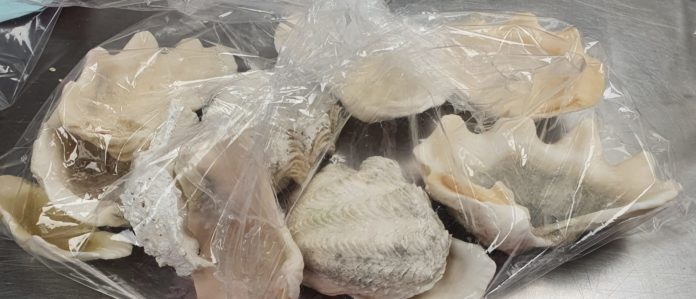Two travellers returning to New Zealand from tropical getaways have been fined for failing to declare protected corals and shells found in their luggage.
The Department of Conservation’s (DOC) Team Lead Border Operations, Clinton Turner says the cases reinforce the need for New Zealanders to be aware of the rules about bringing wildlife items into the country.
In the first case, a traveller returning from the Cook Islands in late May failed to declare six giant clam shells they intended to use as bathroom ornaments. The shells of the species Tridacna maxima (also known as the Maxima or small giant clam) had been picked up from the beach and are threatened by international trade.
In the second case, a traveller returning to New Zealand from Fiji in early June failed to declare several pieces of stony coral which were intended as ornaments for a fish tank. All stony corals are protected by CITES, regardless of where they were found or sourced from.
In both cases, the passengers initially declared some items to border officials, but an x-ray of their baggage revealed further undeclared specimens.
The travellers were each fined $600 under the Trade in Endangered Species Act 1989 for importing the items without the required CITES permits.
Corals and some shells found in Pacific Island nations are protected by the Convention on International Trade in Endangered Species (CITES).
“In both these cases, the travellers did not fully declare they had these protected items. Declarations are a fundamental and familiar aspect of international travel,” Mr Turner said.
“We understand people want to bring home trinkets and tokens of their holidays, but if those items are wildlife, they need to check the rules first. They also need to know the contents of their luggage and be honest with border officials about what they are bringing in.”
Wildlife protected by CITES generally needs permits to legally bring it into the country. Information on CITES – including what permits are needed and how to apply – is available on the DOC website.
“We want to emphasise to all New Zealanders with international travel plans to please check the rules around importing wildlife items.”
“Knowing the rules, getting the right permits and being honest at the border is a far better option than being embarrassed and given a fine when you return from your overseas break,” said Mr Turner.



